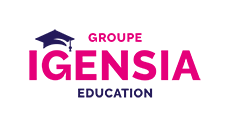International University of Sarajevo


Strengths
The International University of Sarajevo (IUS) was founded in 2003 and upon its opening, it has created an open, tolerant and international environment for its students. The university has grown over the years, and it is among the firsts in Bosnia and Herzegovina to adopt European teaching standards. During their studies, students develop in an intellectual atmosphere of quality and can choose one of the 21 study programs within 5 faculties. The International University of Sarajevo currently has up to 2,000 students in the 3 study cycles, coming from all continents and from 47 countries of the world.
Major, Academics
All lectures are taught in English :
https://ius.edu.ba/curricula
https://ecampus.ius.edu.ba/syllabi
Campus
The 72,000 m² university campus of IUS is located in Sarajevo, Ilidža, near the source of the Bosna River (Vrelo Bosne Park). It offers students high quality study conditions. The entire campus area has a Wi-Fi coverage. The campus is under video and physical surveillance 24/7. The IUS Art Gallery is open everyday and offers you fresh and exciting exhibitions and projects from Bosnian and international artists.
The campus has a restaurant and three cafeterias where students can choose different types of food at affordable prices, in a clean and pleasant environment.
The campus library is at your disposal. It is open from Monday to Friday, 8:30 a.m. to 5 p.m. and is located in the building B. Collective and individual study spaces are also available during library opening hours.
The campus has many sports facilities available to the students and staff members, such as an indoor gym, a soccer field, a fitness center and gymnastics hall. The nearby mountains are perfect for trekking, cycling or skiing.
At the IUS you will have the choice among a wide range of sports, artistic, political, scientific and other clubs that you can join.
To discover
Sarajevo is the capital of Bosnia and Herzegovina. There are around half a million inhabitants, which explains why it is the largest city in the country.
The city has a long and rich history which has been marked by many different cultures. By keeping this in mind, Sarajevo and its people are proud of their traditional religious diversity, as followers of Islam, Orthodoxy, Catholicism and Judaism have coexisted here for centuries.
Sarajevo is a city that embraces the best of East and West and it is rare to find anywhere in the world an Orthodox and Catholic Church, a Mosque and a Synagogue few steps away from each other. The people of Sarajevo are very friendly and crime rate is very low.
Since the assault of Serbian forces from 1992 to 1995, Sarajevo is now fully recovered and represents a major center of culture and economical development in Bosnia and Herzegovina.
Sarajevo’s center is reachable thanks to a tram network that loops counterclockwise around the central area. There are seven tram lines, five trolleybus lines and numerous bus lines. What to see : the old town of Baščaršija – cobbled streets, mosques and oriental-style shops in the heart of the city ; the Latin Bridge – site of the assassination of Archduke Franz Ferdinand which triggered the start of the First World War ; Vrelo Bosne – source of the Bosna river, beautiful park and picnic spot ; Vijećnica (Town Hall) and Gazi Husrev Bey Mosque – one of the world’s finest examples of Ottoman architecture.
Good to know
Plan around €400 / month for accommodation, costs, transportation, meals, personal expenses, etc.
Food – €100-150/month
Books and other studying material – around €20
Public transport – €20/month
Allowance – €100/month
The number of places in Erasmus + is limited. The granting of a scholarship is therefore not automatic and the amount paid may vary. Please refer to the Erasmus+ section.
This information is provided as a guide.
Please visit the partner university’s website to have exact updated information.
Eligibility
Required TOEFL Score : 533
ABS: 2nd, 3rd, 4th year
ESAM : 2nd, 3rd and 4th year
ICD PGE, BBD
ISCPA JOURNALISM : 3rd and 4th year
ISCPACOM : 2nd year (Paris)
ISCPAPROD: 2nd year (Paris)
Documents required
CV (in English), transcript, identity document, cover letter (in English), additional documents may be required depending on destination.
Planning
AUTUMN
Orientation: few days before lectures start
Lectures start : end of September
End of lectures and exams : end of January
SPRING
Orientation: few days before lectures start
Lectures start : mid-February
End of lectures and exams : mid-June
more info : https://www.ius.edu.ba/academic-calendar
Procedures
ID Card or passport (compulsory for destinations outside the EU) valid for six months after your return date.
A VISA is required for stays longer than 90 days.
The International University of Sarajevo will support you through procedures. This procedure costs €200. This amount also includes health insurance. IUS has an agreement with a private clinic located within a 10-minute walk away from campus. The fees also include a compulsory medical examination which must be carried out when applying for the residence permit.
All exchange students are advised to suscribe to a private medical insurance to cover any expenses that may arise during their exchange period.
The student must register at the IUS office latest 48 hours after arrival in Bosnia and Herzegovina in order to obtain the “carte blanche” – a temporary document before obtaining the residence permit.
more info : https://iro.ius.edu.ba/post/visa-documents-required
The France consular service answers all your questions about consular procedures by telephone: https://ba.ambafrance.org/France-consulaire-un-nouveau-service-d-information-pour-vos-demarches-3338
Accommodation
The International University of Sarajevo offers dormitories outside the city. Plan around €150 / month, breakfast included.
You will find the contact link below : http://www.ius.edu.ba/dormitories
If you prefer to stay in a apartment in the city, plan around €200-300 / month free of charge. You will have a list of sites recommended by the university:
Accommodation


